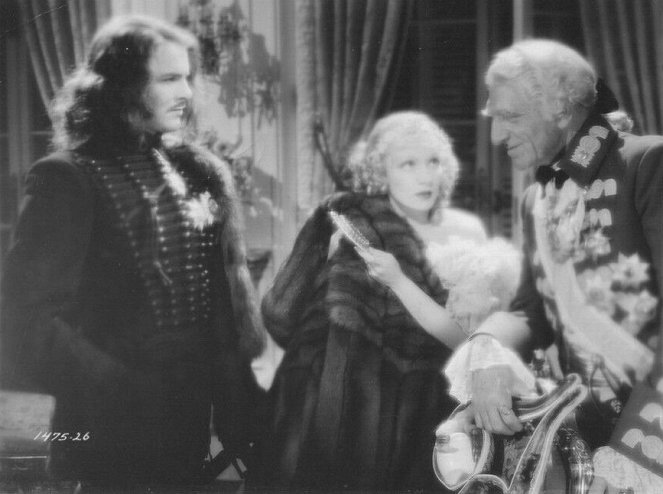Regie:
Josef von SternbergKamera:
Bert GlennonBesetzung:
Marlene Dietrich, John Lodge, Sam Jaffe, Louise Dresser, C. Aubrey Smith, Gavin Gordon, Olive Tell, Ruthelma Stevens, Hans Heinrich von Twardowski (mehr)Inhalte(1)
Die junge deutsche Prinzessin Sophie von Anhalt-Zerbst wird von Zarin Elisabeth nach Russland geholt. Sie soll die Thronfolge sichern und den debilen Großfürsten Peter, Elisabeths Neffen, heiraten. Niemand hat sie auf die alptraumhafte Atmosphäre am russischen Zarenhof vorbereitet. Es ist ein Reich dämonischer Schatten. Die Ehe bleibt lange Zeit kinderlos. Als Katharina endlich einen Sohn - von ihrem Liebhaber Leutnant Dimitri - bekommt, weiß Peter um die wahre Vaterschaft des Kindes. Katharina fürchtet seine Rache, sobald Peter den Thron besteigen würde. Dank ihres politischen Geschicks bringt sie das Militär auf ihre Seite. Als sie schließlich auf Geheißihres Mannes verhaftet werden soll, kann sie mit Hilfe des Militärs ihre Festnahme vereiteln und stürmt den Zarenpalast. Peter wird dabei von Katharinas neuem Liebhaber General Grigori Orlow ermordet. Nach dem gelungenen Staatsstreich wird Katharina Zarin von Russland. (arte)
(mehr)Kritiken (2)
Masochistische Ästhetik in ihrer ganzen entwickelten Pracht. Hollywood-Barock. Oder auch: Der Lebensweg Katharinas II. an die Spitze, der von ihrer zärtlich-dekadenten Sexualität bestimmt wurde. "It is easier for you to scream without a straw in your mouth."
()
The penultimate collaboration between Sternberg and Dietrich gave rise to a somewhat eccentric work which, during its transformation from a studio costume drama into a very European-style and more than a little disturbing fairy tale, recalls the best works of German Expressionism and the (later) second part of Peter the Great. Sternberg again proves to be a distinctive stylist who doesn’t pay much heed to realistic period details or the psychological motivations of the behaviour of the characters, whose gestures are melodramatically exaggerated. He rather pays more attention to the constant contrasts of black and white, where the white in the climax, similarly dramatic as at the end of The Godfather, ironically evokes quite different connotations than at the beginning of the film. The extravagant decorations and props serve as materialised shadows of the actors, whom Sternberg often makes “disappear” among inanimate objects. The protagonist also becomes an object upon her arrival in Russia, but she soon comes to understand how to stand up for herself among the uncivilised madmen. She transforms herself from sexual prey in that she starts to enjoy her humiliation. Played by Dietrich, who lustfully observes both men and women and knows how to precisely serve up ambiguous lines without losing any of their sensuality, this is a very convincing transformation, which is also well “reasoned” by the screenplay and ensures that the film has fans not only among lovers of camp but also among feminist critics. I am neither, but I did not find even a single shot boring. 75%
()


Werbung